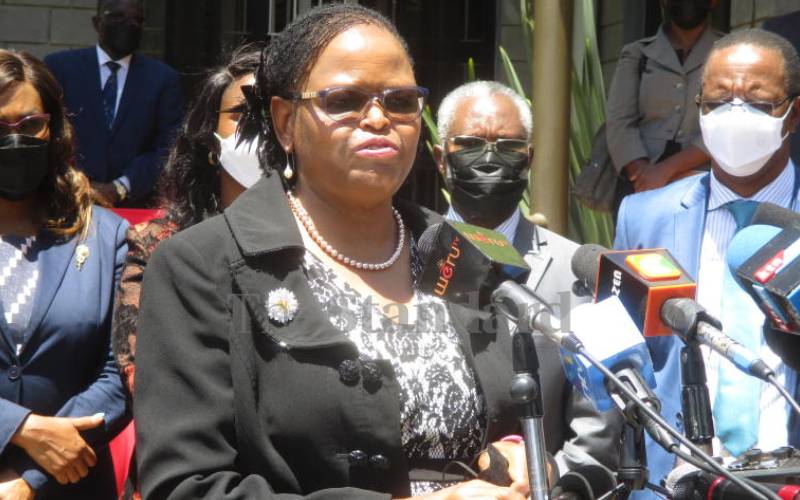×
The Standard e-Paper
Smart Minds Choose Us

Chief Justice Martha Koome addresses the press after meeting IEBC officials. [Wilberforce Okwiri, Standard]
State agencies have hatched a fresh plot to lock out hatemongers from next year’s polls.